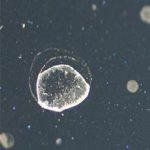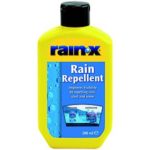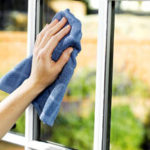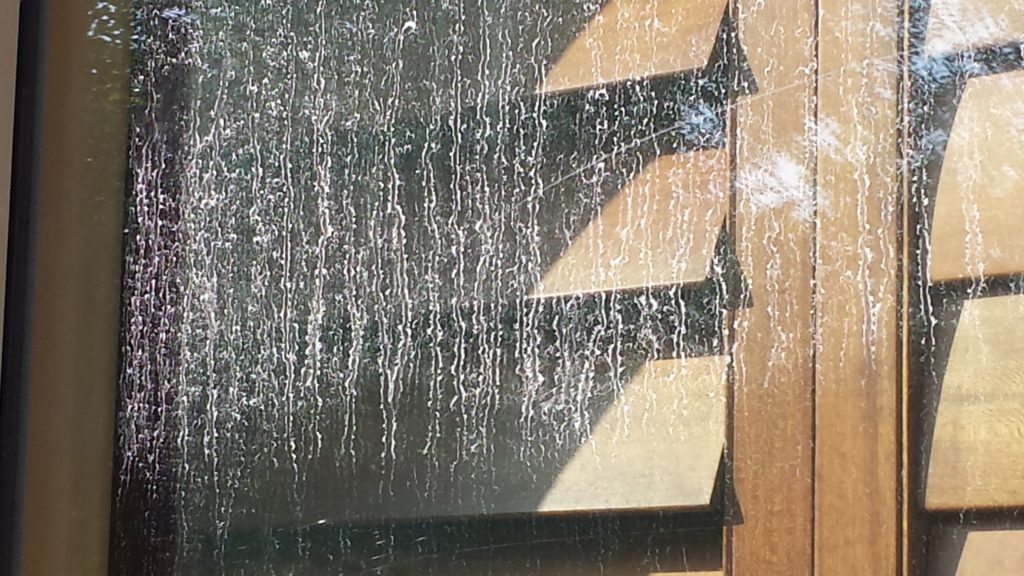Sprinklers are the likely culprit of foggy windows, which can be caused by hard water stains from sprinkler spray and acid rain. If your windows aren’t sealed properly, air and dust could be sneaking through the cracks and dirtying up the insides of your windows, as well. (To learn how you can seal your windows, yourself, read our How-To blog on window sealing.)
So, why do your windows appear more grimy after they are cleaned? Cleaning your windows tends to reveal hard water stains, especially if they’ve been left untreated over the years.
Here are the facts about hard water stains along with a few tips on how you can prevent them in the future.
 Causes
Causes
Hard water stains occur when sprinkler water hits the surface of a window and deposits chemicals like calcium and magnesium onto the glass panes. When the water dries, you can clearly see the hard water spots or “lime scale” left behind.
Prevention
 Attach a filter to your water system to try to remove the minerals in the water.
Attach a filter to your water system to try to remove the minerals in the water.- Adding a water softener can also help neutralize chemical deposits.
- Avoid actively spraying your windows with hard water.
- Position your sprinklers away from glass windows.
In one forum, a community member suggested applying Rain X to windows, monthly, to protect them from mineral deposits.
Hard Water Stain Removal
Everyone has their own way of treating their windows, so feel free to experiment. You can either use household items to scrub away built-up grime, or you can purchase something specifically designed to take care of those pesky water stains.
 Here are a few items you can find around your house that can loosen up the grit on your windows:
Here are a few items you can find around your house that can loosen up the grit on your windows:
- Toothpaste
- Baking Soda
- Vinegar
- Lemon juice
- Cola
- Microfiber
- Steel wool
We hope you enjoyed our short DIY article on why water stains occur and how you can prevent them in the future. Stay tuned for more handy posts, to help your home in tip top shape!
